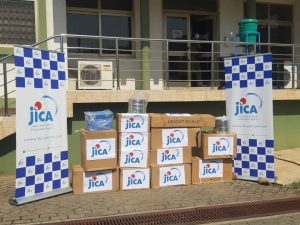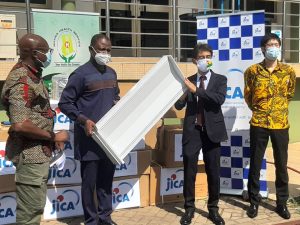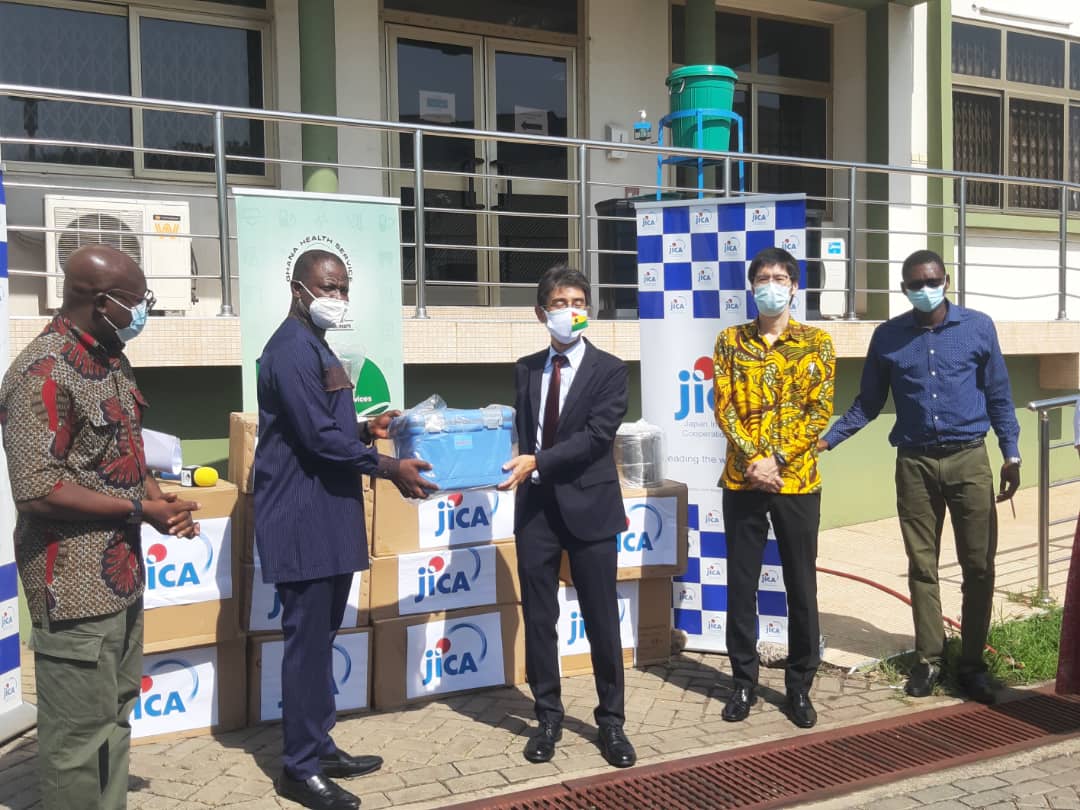The Japan International Cooperation Agency, JICA, has today donated assorted medical equipment at an estimated cost of GH₵ 6.5 million to the Ghana Health Service and the Ministry of Health to support delivery of health services in the five northern regions of Ghana.
The initiative is intended to support the country’s effort towards the attainment of Universal Health Coverage by improving access to quality health services and strengthening the network of care within the Primary Health Care System in the Upper West, Upper East, Northern, North-East, and Savanna regions.

The equipment will enhance the provision of essential health services through the Life Course Approach. Some of the equipment provided include Pulse oximeters, Glucometres, Haemoglobin meters, and their respective strips, BP apparatus, Stethoscope, Weighing and Height scales, Dressing instrument set, Sterilizing drums, Veronica buckets, Vaccine carriers among others.
ARAKI Yasumichi, the Chief Representative of JICA Ghana Office, acknowledged the strong collaboration between the MOH, GHS and JICA that has led to many impactful interventions such as improving geographical accessibility through the CHPS strategy and addressing maternal and newborn care issues and currently throughout the generation in northern Ghana.

He expressed excitement that 52 districts in the north and over one thousand functioning CHPS zones will benefit from this intervention.
The Director-General of GHS- Dr. Patrick Kuma Aboagye led a team of divisional Directors of the GHS and some staff members to receive the items.
Background

To mitigate the worrying situation and ensure continuity of essential health services, the Ministry of Health (MOH)/ Ghana Health Service (GHS) requested medical equipment support through the Japan International Cooperation Agency (JICA) supported project for Strengthening community-based health services focusing on the life-course approach in the Upper West, Upper East, and Northern Regions (“CHPS for Life”).

It also focuses on building the capacity of health professionals at the CHPS, Health center, and District hospital level to promote a healthy lifestyle, social behavior change, early detection, and prompt referral of high-risk conditions including NCDs and other diseases of public health interest.
Source: Kofi Ahovi
